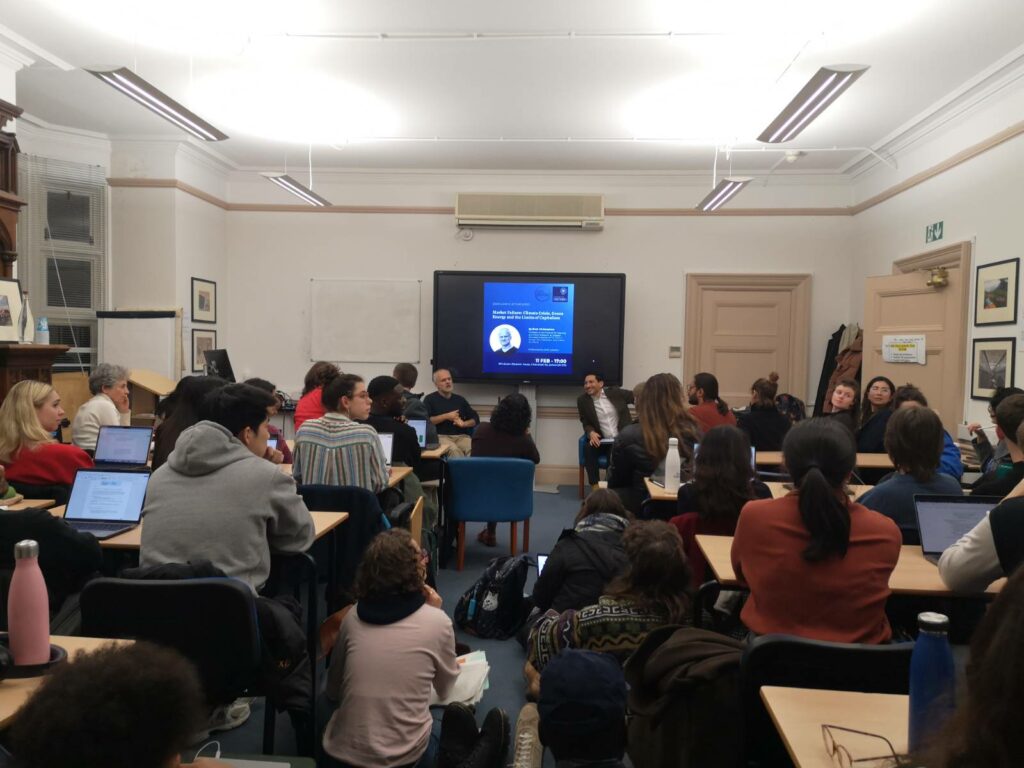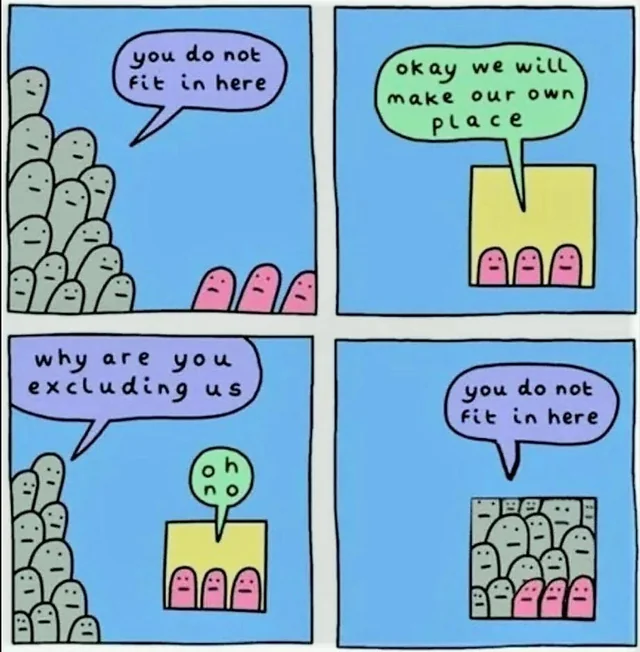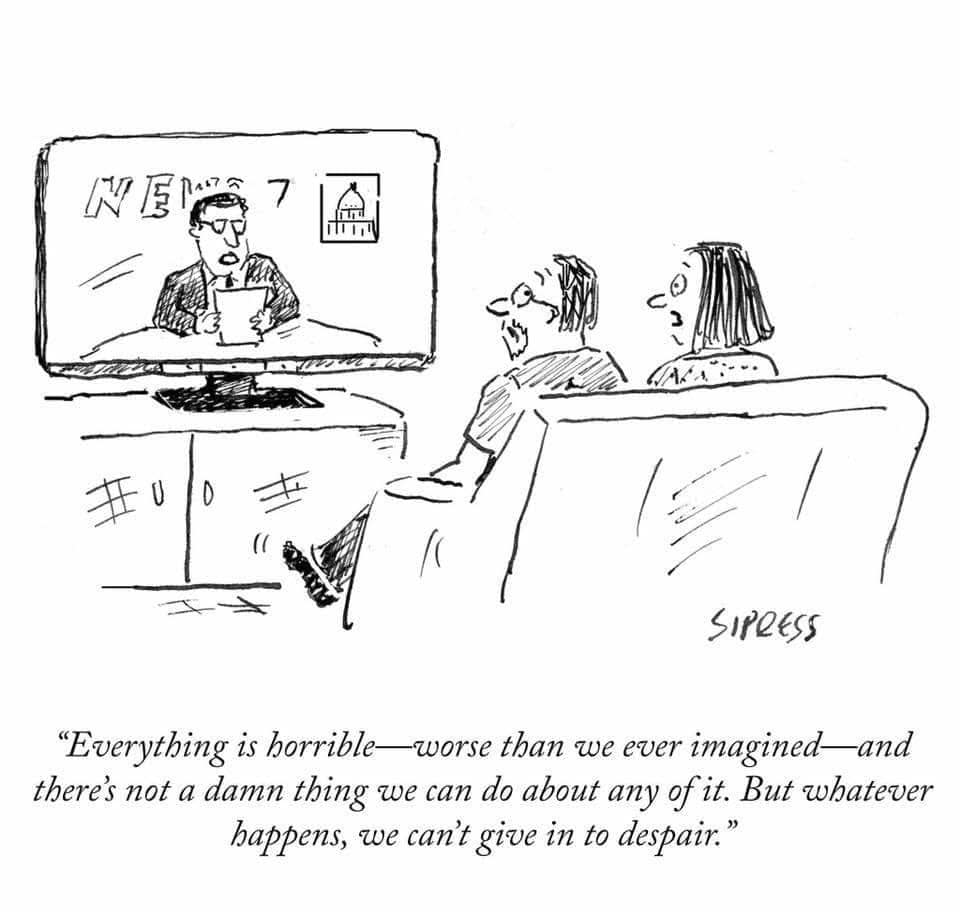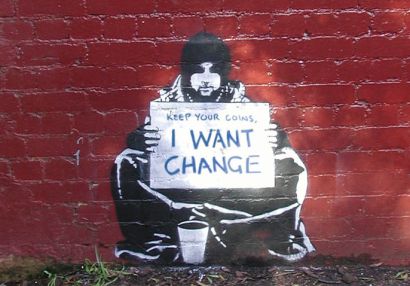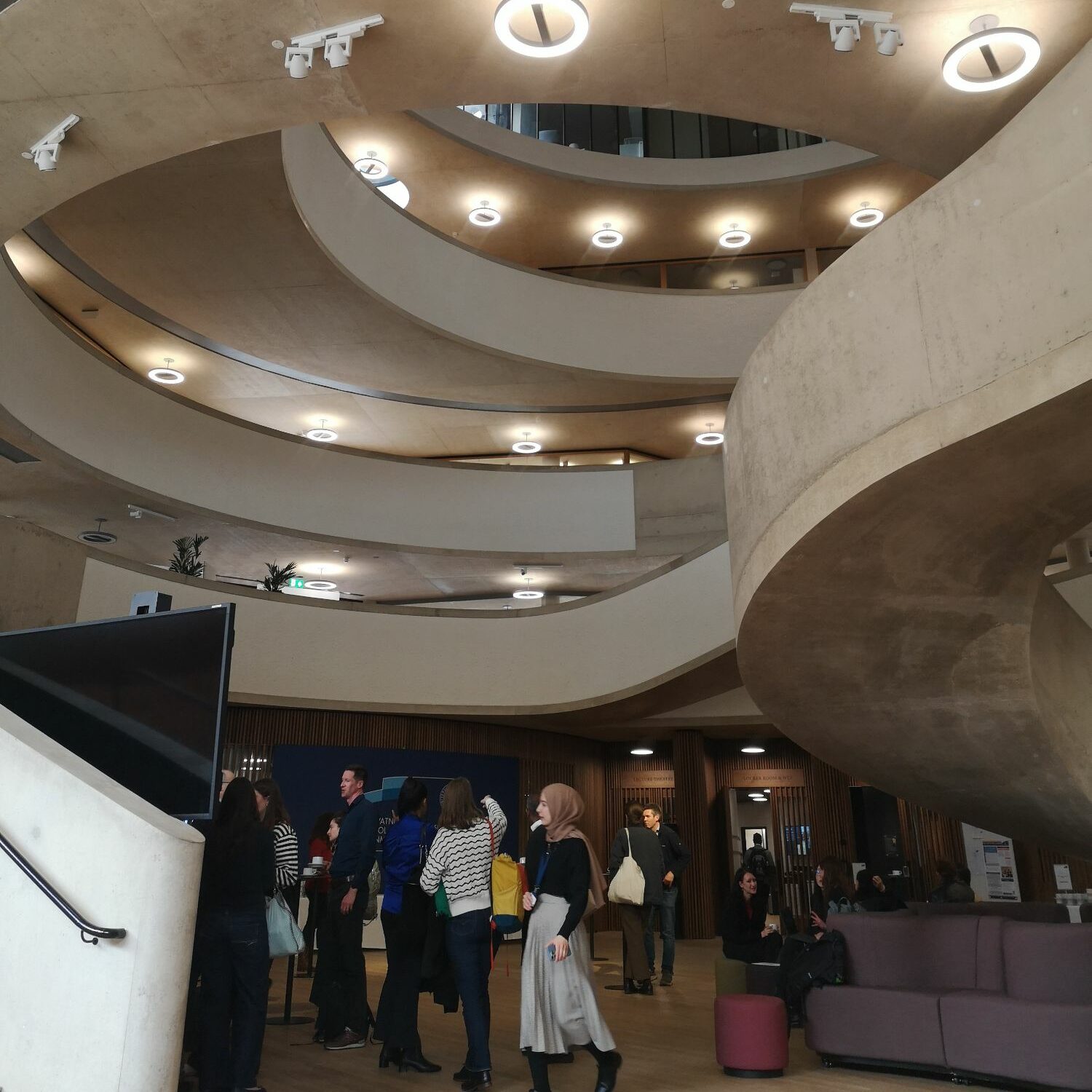
The opening moment of the workshop on Methodological Strategies for Real-Life Theorising was unintentionally profound. A story of a seagull crieing above the glass façade of the Blavatnik School of Government – a building that stands as a temple to the #deathcult that shaped our lives for the last 40 years of #neoliberal change. In hindsight, that seagull metaphor may have been the wisest participant at the event.
The sessions that followed offered a painful reminder of just how entrenched and constipated academic political theory can be. Many of the speakers, well-meaning, no doubt, spoke in dense, self-referential language, seemingly unaware (or uninterested) in the world burning outside. We are living through accelerating #climatechaos, surging right-wing extremism, and widespread social fragmentation. Yet here, the main concern is career-building through opaque frameworks and method fetishism. One can’t help but wonder how many in the room truly believe they are doing good?
The crisis is deeper than any single workshop. The very career paths that brought these scholars here have been shaped, filtered, and “concreted” by 30 years of neoliberal funding models. The result is a form of political theorising that appears to want to find a way out, but only by squeezing itself through the tightest gaps in the #postmodern mess. And even then, only while clutching tightly to the privileges and assumptions granted by the current paths.
Constipated Language, Abstract Struggles
Throughout the first sessions, there was a recurring sense of people talking to themselves. Even the attempts to make theory “concrete” – to move into empirical territory – felt more like power grabs than inquiry. There was talk of “transient theory,” of “mid-level normative frameworks,” of “ethnographic insights”, but very little clarity on what any of this meant in real practical or political terms.
Instead of confronting the deeply ideological assumptions embedded in liberal academia, the speakers soft-stepped around them. One could sense them trying to smuggle ideology back into a discipline that’s been left hollow. The “heroic era of theory” is dead, and what we’re left with is a ritual performance of relevance. At one point, the liberal impulse to block discomforting inputs in public policy was laid bare. This is ethics as insulation, not action. There was repeated deference to “existing norms and frameworks,” – the very architecture of the #deathcult, now warmed up and served again as policy advice.
The Seagull Still Watches
By the end of the day, some fresh air drifted in. A few scraps of cloth were handed out to the otherwise naked theorists. There was genuine engagement with normative complexity. Questions like “what is mutable?” began to shift the conversation. “Engaged political philosophy” and talk of “normative judgments” began to inch the discussion closer to the ground.
The presentation on restitution, for instance, highlighted real political dilemmas. Who decides what gets returned, and why? Is it justice, diplomacy, or geo-political calculation? One question noted that giving back looted objects is not just about ethics, it’s about giving back the values they represent. But this was quickly hedged with talk of “choice.” Liberal hedging again. No one wanted to say: yes, do it, without compromise.
Even here, markets remained the baseline. The dominant “common sense” is still economic flow. Value is defined by trade, not meaning. Discrimination itself can to easily be reframed as a market distortion, another cost to be corrected, not a systemic condition to be fought. The anti-market perspective, grounded in actual social justice, in living memory, in reparative truth, is invisible to meany people until it becomes a threat. At that point, the strategy shifts to distraction and buying off. That’s the logic of #neoliberal containment.
From Political Theory to Political Theater
What we witnessed was not just a methodological workshop, but a staged performance of institutional survival. Theories were dressed up, displayed, but never walked out into the street. Real political agency remained absent. The political philosopher, once imagined as a public actor, now hides behind peer-reviewed paywalls, while the world asks different questions entirely.
Still, by the end, perhaps there were reasons for the seagull to hold off its stone throwing – for a while. A few voices showed signs of life. A few questions struck true. But it will take more than scraps of normative cloth to cover the nakedness of political philosophy today.
The seagull will be watching.
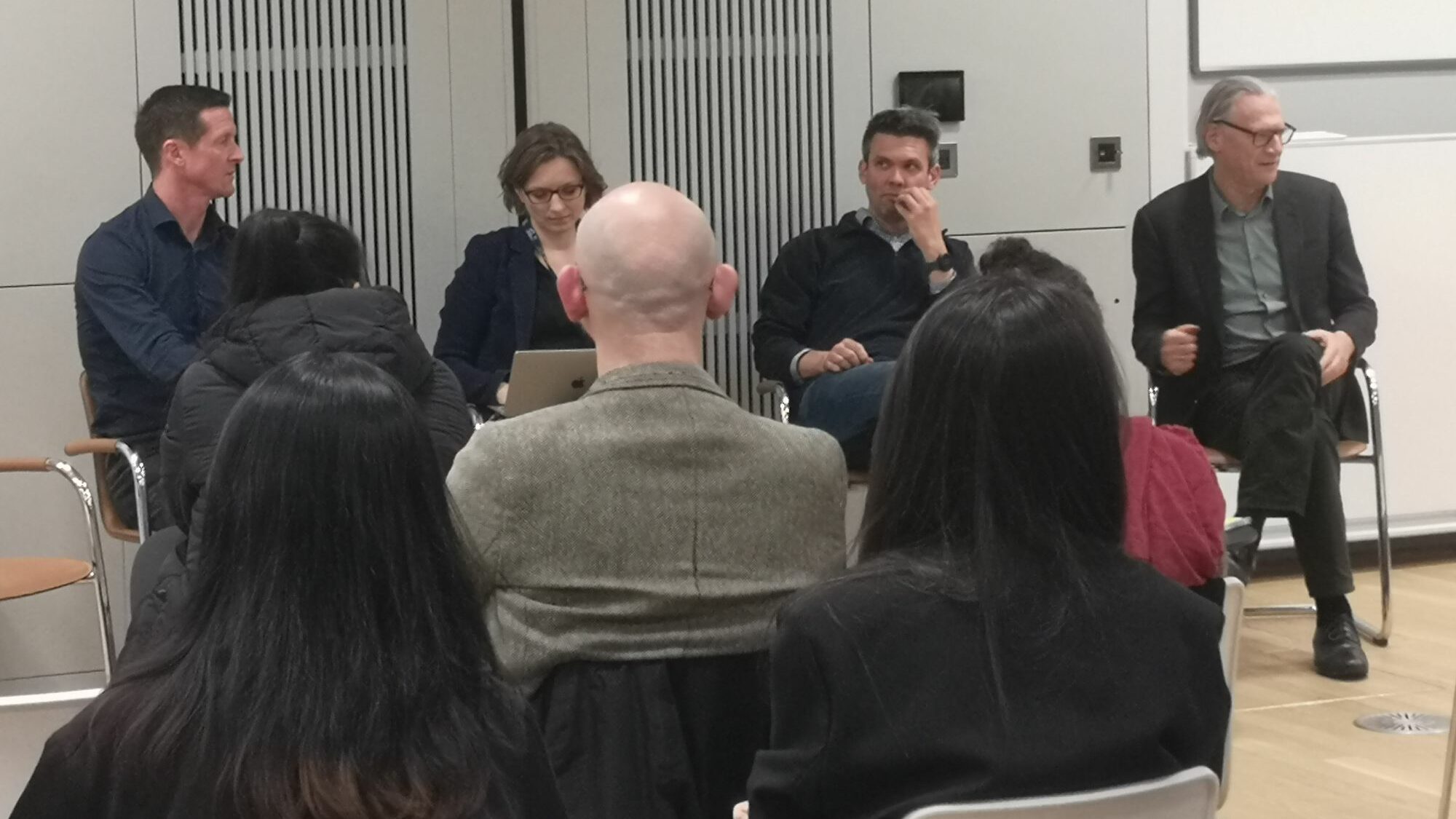
The event: Many political philosophers theorise not only for the sake of pure theory, but also because they want to convince citizens and policymakers to bring about changes in the real world.
Such policy-oriented research often draws on interdisciplinary methods, integrating empirical insights and normative and conceptual arguments. This, however, raises methodological challenges of its own. For example, how to deal with the fact that the social sciences are fragmented and different disciplines work with different paradigms and methodologies? How can philosophers, who bring their own normative assumptions openly to the table, deal with the – sometimes implicit – normativity that is also inherent in many other lines of research? What level of abstraction of normative arguments, eg basic normative theories or mid-level overlapping principles, should philosophers draw on when discussing with policymakers? And how to deal with the fact that in the current political climate in many countries, distrust towards “experts” also extends to philosophers?
Workshop agenda
Day 1: Thursday 24 April 2025
Methodological Strategies for real-life theorising
Chair: Jonathan Wolff, Blavatinik School of Government
Liron Lavi, Bar-Ilan University and Nahshon Perez, Bar-Ilan University: Conceptual Concretization in Empirically Informed Political Theory: What Makes a Concept Applicable
Carmen E Pavel, King’s College London: Mid-Level Theories of Justice and Public Policy
Kian Mintz Woo, University College, Cork: Explicit Methodologies for Normative Evaluation in Public PolicyTheorising between values and cases
Chair: Daniel Halliday, University of Melbourne
Rouven Symank, Free University, Berlin: Integrating Ethnography with Political Theory in Policy-Oriented Research: Challenges and Insights from Cultural Restitution Debates
Florence Adams, University of Cambridge: Discrimination as an Object of Social Science
Erika Brandl, University of Bergen: Measuring the justice of architectural development policies:debates on temporal scopes and indicators in the Hillevåg planMy notes on this event:
The seagull is perhaps a good metaphor for nature fighting back against the last 40 years of human #deathcult culture that this building is temple of.
The language is constipated, a growing feeling that these people are pissing funding and focus against the wall while the world burns from #climatechaos and hard right social breakdown.
I wonder how many people here think they are doing good?
The problem on this career path is that it has been shaped by #neoliberalism for the last 20 years, funding and status have both been ground through this mess, and now reflect it.
After the first session I feel they are trying to squeeze themself out of this post modernist mess. By going back to basics, but it’s so constipated it’s hard to see if there is any value in this.
Looking at them talk and answer questions, you can feel them being lost. It still feels like they are talking to themselves.
A power grab, by making theory concrete, to build empirical research. They dodge this by saying the theory is transient.
If this is a bios? They fix this by making the bios visible. They find this question hard to answer as its a root issue.
They are “soft” sneaking ideology back into the current dead Political Science and theory world they work in.
The heroic era of theory is challenged for making public policy. They argue that we should start from the existing norms and frameworks. This from the #deathcult we get wormed up #deathcult worship as policy. Mess. Of course liberal rights have priority in the end, “we must also include institutional facts”.
The seagulls at the start of this event might be the wisest one here. The rest have no cloths, and the language is so constipated that the smell is likely off putting for any real outreach that they need in the scrabbling for coverings to continue their careers.
The liberals start to talk about #blocking the inputs that make them uncomfortable. In ethical public policy making.
From a working insider view, the people doing this don’t have the skills or knowledge if we focus on philosophy and theory only.
Good question, what is given, what is mutable is very mutable. So the Liberal “common sense” is likely a strong #blocking on the path of the change we need.
“Engaged political philosophy” “normative judgments” as we go on they start to be more relevant. “where there is convergence and divergence”
The event starts naked and smelly but as it goes on the air clears at times and some scraps of cloth are provided.
Relevant information that is easily excessable,
The power in a committee is the appointment of the people sitting on the committee rather than the committee process it self. The answer to this is hesitant and bluff, and distaste to cover this.
A chair or witness roll is different in committees.
Why restitution, why now.
Liberal
Justice
Reperatition is politics, not just ethical, geo politics and funding, based on former colonist will, is a tool for “ethical diplomacy”
Can any of these be seen as a reason not to do it. Don’t have an answer. Normative lessons.
When we give back objects that we value from our looting, we are giving back our values. We still chose.
My parents work is displayed in our #mainstreaming institutions, but these institutions are not interested in the objects, as they do not fit into there existing story’s and category. Subject archives will take them. But this is still shaping history.
Markets as the dominant “common sense” everything is economic flows. Value is defined by this.
Discrimination is contested with the hard shift to the right #DUI
Distortion in the market, function efficiently.
Discrimination is about greed, American greed, a moral dilemma. Liberal but not to liberal. Talk about the market path, let the market do its thing.
Markets aligned characteristics, money the logic of the #deathcult
As my work is anti market they can’t see any value, so put no resources and focus on the path in till it becomes a threat then distraction and buying off become the difficult paths.
Trump now is turning this neoliberalism around as discrimination. What is this, discrimination against nation states, rather than economics/market.
At the end the might be reasons for the seagull to hold off the stone throwing for a while.

